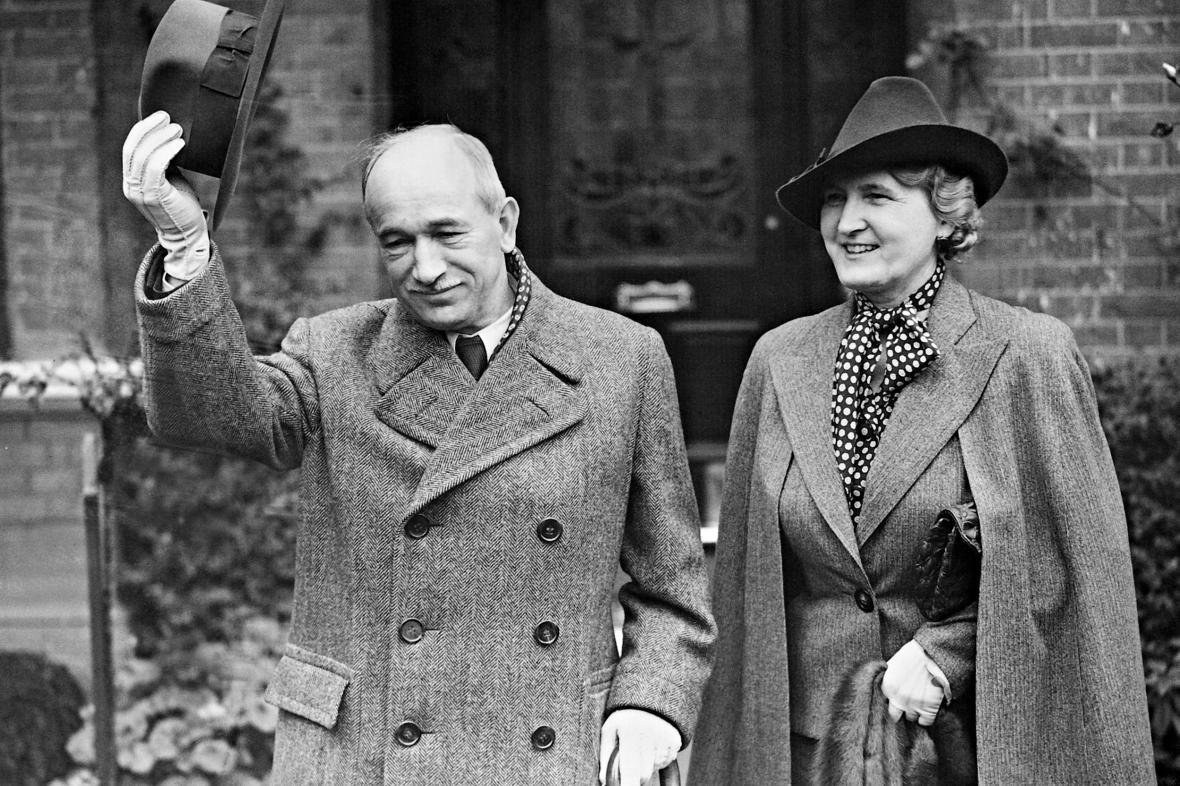He was one of the pioneers of the Czechoslovakian "independence" movement: Who is Edvard Beneš?
He contributed greatly to the liberation of Czechoslovakia from Austrian rule. However, the fact that Czechoslovakia became allied with the Soviet Union and came under Soviet rule is also his work.

(1884-1948) Czech statesman. He fought for the liberation of Czechoslovakia from Austrian domination and became the head of state. He was born on 28 May 1884 in Kozlany, South Bohemia. He was the tenth child of a farming family. He died on September 3, 1948, in Sezimova-Usti. While studying at the Faculty of Letters at the University of Prague, he was influenced by his teacher, Czech patriot Tomas Masaryk. He supported Masaryk's efforts to end Austrian rule. In 1908, he received his doctorate in law from the University of Dijon, France. After returning to his country, he worked as a lecturer at the Prague Commercial Academy and at the University of Prague.
Edvard Beneš (28 May 1884 – 3 September 1948) was a Czech politician and statesman who served as the president of Czechoslovakia from 1935 to 1938, and again from 1945 to 1948. He also led the Czechoslovak government-in-exile 1939 to 1945 during World War II.
After the start of World War II, he went to Switzerland and campaigned against Austria. Later, he went to Paris and founded a propaganda organization with Masaryk and Slovak leader Milan Stefanik. This organization became the Czech provisional government in 1918 and was recognized by the Allies. Benesh became foreign minister in the interim government. After the defeat of the Austro-Hungarian Empire in World War I, the independent Republic of Czechoslovakia was established. Continuing as the Minister of Foreign Affairs, Benes attended the Paris Peace Conference in 1919 as the head of the Czech delegation.
Benesh was foreign minister in every government until he became head of state in 1935, and also served as prime minister from 1921 to 1922. After 1920, he represented Czechoslovakia in the League of Nations.
He was elected to the Association Council in 1923 and served as its chairman six times. He was instrumental in drafting the Geneva Protocol in 1924, which mandated the resolution of disputes between members through arbitration.
Considering that the plans for the unification of Austria and Germany threatened the unity of Czechoslovakia, he wanted to create a power that would maintain the balance in Eastern Europe. As a result of the negotiations with Romania and Yugoslavia, he established the Little Entente in 1921. Benes thought that the Small Entente alliance with France would play an important role in the defense of Eastern Europe against Germany and in the political and economic strengthening of Czechoslovakia.
He paid attention to the development of Czech-Soviet relations. When Germany left the League of Nations in 1933, he made an important contribution to the acceptance of the Soviet Union. In 1935, he signed a bilateral cooperation treaty between the Soviet Union and Czechoslovakia. He took his place after Masaryk withdrew from the presidency the same year. In 1938, when Germany wanted the Sudet Region, Czechoslovakia was left alone as a result of the withdrawal of the Allies. Benes resigned from the presidency and went abroad after the decision to leave the Sudet Region to Germany at the 1938 Munich Conference.
After being a professor of philosophy in Chicago for a while, II. When World War II began, he established the Czech National Committee in Paris. The committee moved to London in 1940 and was transformed into a provisional government. Benes assumed the presidency of the government recognized by the UK. In 1943 he signed a Pact of Friendship, Mutual Assistance, and Postwar Cooperation with the Soviet Union. He was elected head of state in 1946 as the head of the only government of exile to return to his country after the war ended. He formed a communist-dominated government. There were two coup attempts in 1947. He refused to ratify the new constitution in 1948 and withdrew from the presidency.
The unfinished memoirs of Benes, who was known as an active politician in the international arena and contributed to the existence of Czechoslovakia as an independent country after being freed from Austrian domination during his lifetime, were published under the title ("Memoirs: From Munich to New War and New Victory").
